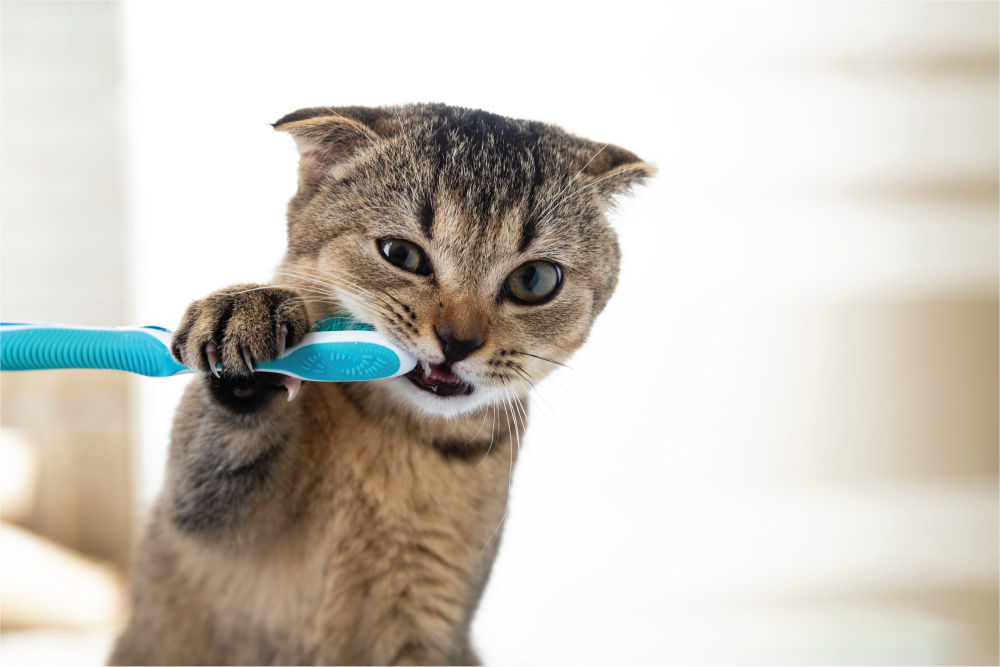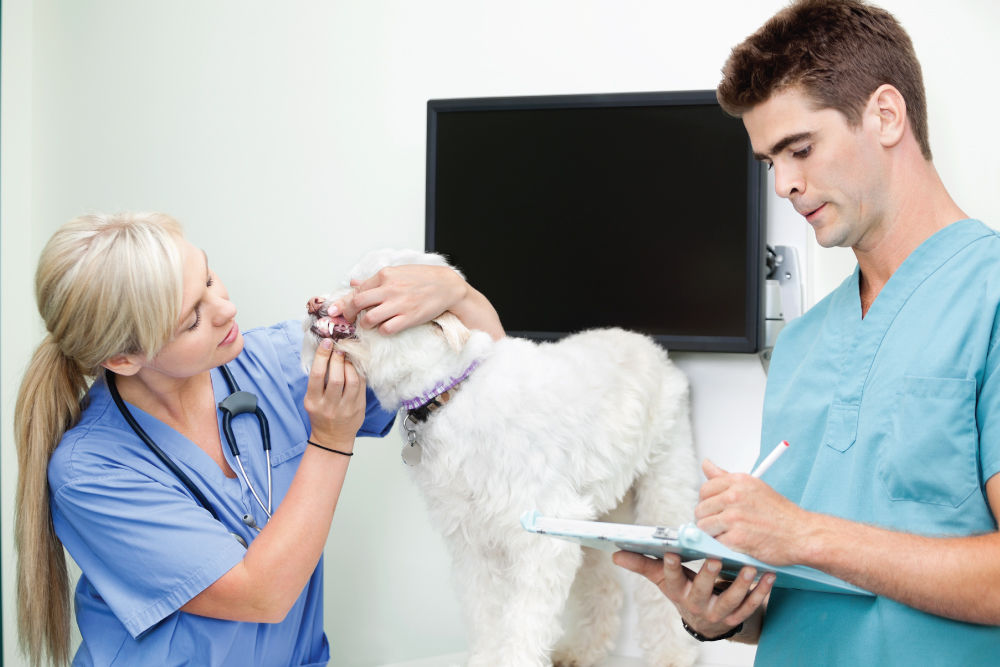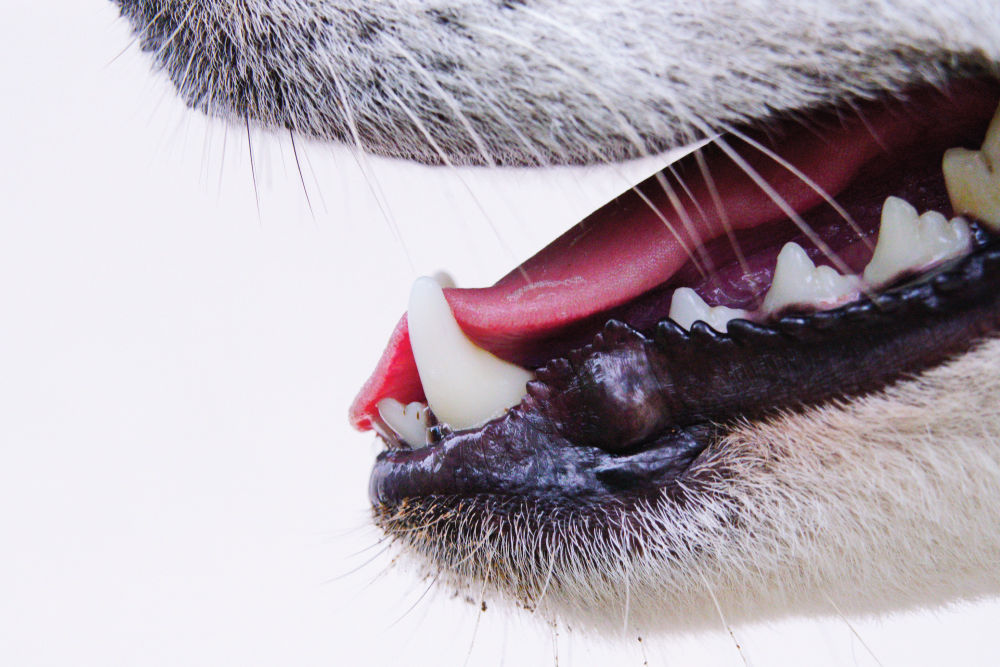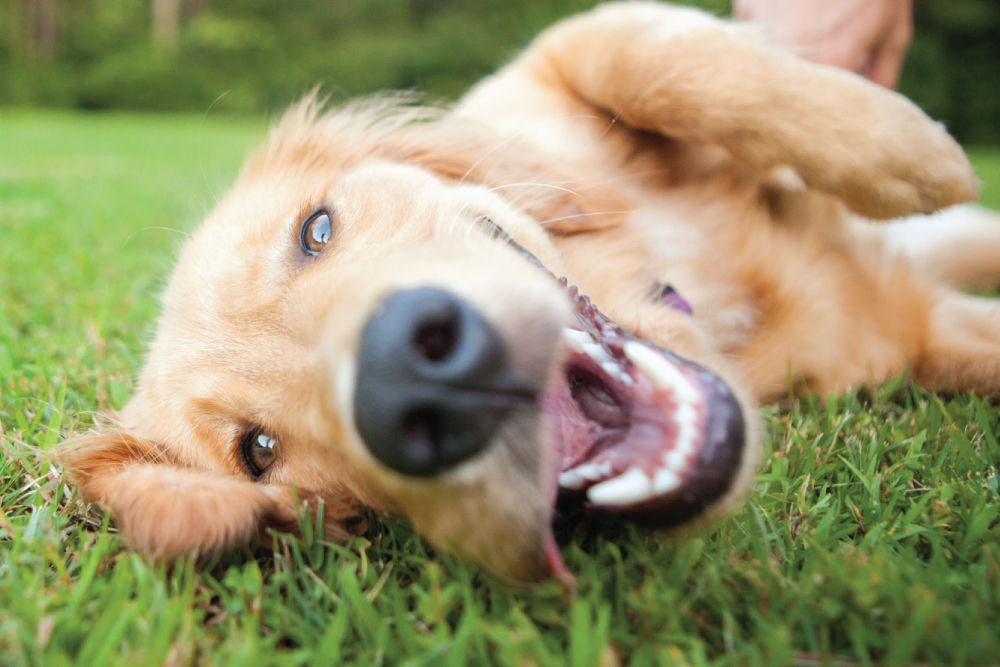
Taking care of their teeth is one of the most important health-related things you can do for your pet! Without preventive measures and cleaning, most dogs and cats will develop some form of periodontal disease by the time they are three years old. When left untreated, dental disease in cats and dogs can lead to many serious and life-threatening conditions, including infections, kidney disease, and heart disease. Chews, rinses, and brushing can prolong the time between dental cleanings. When your pet does need a dental cleaning, your pet is in good hands with our certified technicians and veterinarians.

You wouldn't dream of going your entire life without seeing a dentist, so why wouldn't you take your pet to the vet for dental care? If your pet doesn't receive appropriate dental services, they will likely develop problems like bad breath and tooth discoloration. And while these issues seem minor, they often lead to more severe issues when not addressed.
Your pet could experience pain, difficulty eating, and infections as a result of poor dental health. Infections originating in the mouth can enter the bloodstream, too, and travel to other parts of your pet's body. They can cause heart, liver, and kidney disease and even lead to premature death.

That's why regular dental health evaluations are a necessary component of your pet's wellness program. Current dental exams provide a baseline for reference in case of future dental problems, and professional cleanings help prevent painful dental diseases that can lead to other health issues.
If your pet is experiencing any of these symptoms, please let us know so we can perform a thorough evaluation of your pet's dental health and provide the necessary treatment.
● Halitosis or “Bad Breath” – contrary to widely held belief, this is not normal in animals
● Excessive Drooling — typically of foul-smelling saliva
● Appearance of plaque or tartar, beginning along the gum line and extending down the tooth (depending on the severity)
● Swollen, reddish gums
● Lack of interest in chew toys
● Discolored teeth
● Chronic eye infections or drainage with no exact cause or cure
● Reluctance to eat (dry food in particular) or reduced appetite
● Broken or fractured tooth/teeth
● Frequent, regular sneezing
● Pawing at or rubbing the muzzle/mouth
● Abnormal discharge from nose
● Favoring one side of the mouth when eating

If your pet is having problems chewing, or even if their bad breath is knocking you over, please call us to schedule an oral exam with our veterinarian at Dugan's Veterinary Hospital. Our team provides top-notch dental care for a variety of species in Aurora and the surrounding areas.